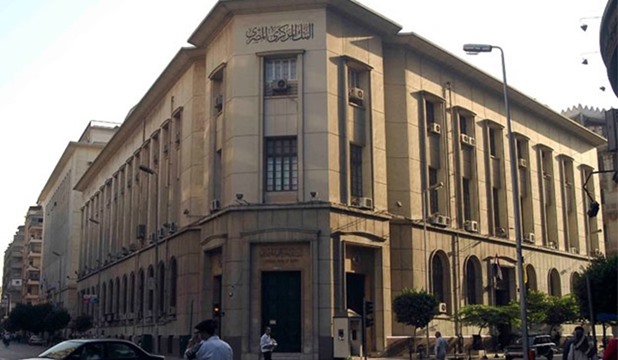
Abia State-based journalist, Norah Okafor, will not forget September 23 in a hurry. The broadcast journalist had been telling the stories of others. But on that day, she told her own story, and she did it, in pain.
In a series of social media posts, Ms Okafor narrated how operatives of the Economic and Financial Crimes Commission (EFCC) besieged her house at 1:36 a.m. that Thursday.
According to her, the officers, who she initially mistook for armed robbers because of the masks they wore, forced their way in through the electric fence surrounding the compound.
“I was alerted by my brother that there were armed robbers at my gate. I didn’t bother because I felt they couldn’t make their way in, due to the electric fence surrounding our compound. I was wrong. They came prepared.”
After gaining entry into the premises and later into their apartment, Ms Okafor said the officers ordered her at gunpoint to hand over her phone.
“The next thing I realised was that about seven of them were already in my room, shouting ‘lie down,’ ‘facedown,’ ‘Where is your phone?’ Seeing over 25 hefty men with different kinds of guns, I handed the phone to them with the car keys. By then, they had already taken my laptop. At this time, they had given my brother the beating of his life.
“They went out and unlocked all the cars. After searching through the phones and laptops, three of them came in and that was when we realised they were EFCC.”
In August, it was the home of a former Big Brother Naija ‘Lockdown Season’ housemate, Dorathy Bachor.
Ms Bachor, in a post on her Instagram page, said EFCC operatives broke the door to her house at about 4 a.m. on a Monday, searching for someone who ran into her estate in the Lekki area of Lagos.
The former TV reality show housemate said the operatives made their way into her living room in search of the suspect.
While condemning the officer’s invasion, Ms Bachor said the incident left her shaking and her mother in a panic state.
“At 4:45 a.m., I heard a loud sound, and voices followed after. I rushed out almost naked to see fully armed @officialefcc men in my living room,” Ms Dorathy partly stated on her Instagram story.
“One of them said, ‘Oh no, that Big Brother babe be this’; in my confused state, I am trying to understand what in the hell was going on. Why did they break down my door?”
Although EFCC later explained that its operatives executed a search warrant at Ms Bachor’s house, the agency admitted breaking into the house forcefully.
“Ms Bachor’s apartment happened to be one of the flats in the building. EFCC operatives had knocked on her entrance door, identified themselves as being from the Commission on a mission to execute a search warrant. But they were refused entry, for several minutes by Bachor’s sister. The operatives were left with no choice than to force their way in, lest suspects escape or destroy vital evidence,” the anti-corruption agency defended the action of its operatives in a statement.
In July, Biodun Stephen, a Nigerian filmmaker and screenwriter, also narrated how operatives of the commission broke into her hotel room in the middle of the night.
She said “two men dressed in black weapons” identified themselves as EFCC officials.
“That is how I slept in a hotel whilst filming last week. Next thing, I opened my eyes at a little past 3 a.m. What did I see? Two men dressed in black weapons. I thought I was dreaming. Then I heard the door to my room close,” she wrote.
These scenarios are snapshots of the experiences of many Nigerians coping with EFCC’s crude tactics in battling internet fraud.
EFCC operatives have invaded at least nine different hotels, in Lagos, Ogun and Enugu states between July and September 2021, media reports monitored by our reporter show.
In July, operatives of the commission invaded Parkitonian Hotel, Lagos, where they arrested over 30 suspected internet fraudsters.
Operatives of the commission also invaded an unnamed hotel in Ibadan, the Oyo State capital, in August and arrested an Italian.
On August 17, they arrested 10 suspected internet fraudsters at a hotel along Karji Expressway, Kaduna State.
They raided three different hotels in Abeokuta, the Ogun State capital, where they arrested suspected cybercrime offenders on September 14.
The hotels are Daktad Hostel in Quarry Road, Cecilia Suites located in the Ibara GRA, Abeokuta and a government-owned hotel, MITRO Residences Annex in Abeokuta.
Three days later, on September 17, EFCC operatives invaded three hotels in Enugu and arrested about 16 suspected internet fraudsters.
An official of Celia Suites, Abeokuta, Ogun State, described how the operatives allegedly seized hotel master access cards from the reception and opened the rooms one after the other on their own during the September 14 raid on the hotel.
The operatives were said to have barged into the rooms with some guests naked and woke others from sleep. At least 56 lodgers were arrested on the suspicion of being involved in cybercrimes during the operation.
Legal and public affair experts expressed concerns about the trend as many Nigerians now see a similarity between the tactics of the EFCC and the defunct and disbanded Special Anti-Robbery Squad (SARS), a notorious police unit whose inhuman activities triggered a nationwide #EndSARS anti-police brutality protest last year.
Unfulfilled promise
Ms Okafor’s and others’ experiences speak to loss of will by the EFCC chair, Abdulrasheed Bawa, to redirect the Nigerian foremost anti-corruption agency to the path of professionalism and rule of law.
EFCC was established in the early 2000s by the former President Olusegun Obasanjo administration to fight financial and economic crimes like advance fee fraud, money laundering, and terrorism-financing, among others.
In the past few years, the battle against cybercrimes through which EFCC earns quick convictions at a high rate, has been high on the commission’s agenda.
As the activities of Internet fraudsters appear to be on the increase with many falling victim to Nigerian scammers, EFCC appears to have thrown caution into the winds in hunting down suspects, commonly referred to as ‘Yahoo Boys’ at nightclubs, pubs, hotels and private homes.
The rights of many innocent Nigerians are often violated in the process, as it was in the cases of Ms Okafor and others.
In his first television interview after his appointment as EFCC chair in February, Mr Bawa promised Nigerians to ensure the anti-corruption agency operated with fear of God and in line with the rule of law.
“I will continue to do what is right,” he said, adding, “The commission under my watch will continue to abide by the rule of law. If anybody asks me to do anything contrary to my conscience or against the rule of law, I will resign my appointment.”
However, little has changed in the operations of the commission since the 41-year-old assumed office in February.
While the parade of suspects continues, illegal raids of homes and hotels in search of internet fraudsters have heightened on his watch.
Unjustifiable
Festus Ogun, a lawyer and human rights activist, believes that while corruption should be fought to a standstill, “EFCC gangster-like invasion of hotels and homes cannot be justified under any guise.
“The senseless and malicious attacks on hotel lodgers in the middle of the night is blatantly unlawful. While the selective fight against corruption remains a thing for the anti-graft agency, it lacks power in law to arbitrarily disturb the peace of others; not even in the dead of night.”
Mr Ogun stated that a recent judgment delivered by the Oyo State High Court in favour of Sunday Adeyemo, Yoruba nation agitator whose house was raided by Nigeria’s secret police a few months ago, should “remind all Nigerians that security agencies cannot continue to act like thugs in a constitutional democracy.”
The court also ordered the federal government to pay Mr Adeyemo N20 billion in damages.
According to Mr Ogun, continuous invasions do not only constitute a violation of human rights but an attack on the economic rights of hoteliers to means of livelihood.
“What is the essence of the right to life without means of livelihood? The despicable trend must be immediately halted or the EFCC is made to face stern legal consequences.”
Another lawyer, Eluma Aswogua, cited sections 34 and 35 of the Nigerian constitution which provide for the right to dignity of human persons and right to personal liberty respectively.
“Much as it is understood that the EFCC has the powers to proceed against anyone it reasonably suspects to have committed a financial crime, such should be conducted in a manner that preserves the dignity of suspects who are still presumed innocent until pronounced guilty by a court of competent jurisdiction. Such braggadocio, aside from the media frenzy, has never been known to produce any results in the fight against financial crimes.”
Mr Aswogua claims to be dealing with a case of a client who was arrested in that manner by the EFCC for dealing in cryptocurrency.
“The intelligence the anti-graft agency got against him was that he spends too much time on the computer and the agency immediately concluded he was an internet fraudster. EFCC should understand that there are legitimate persons who conduct 100 per cent of their businesses online.”
EFCC investigation is being carried out in a manner that suggests the commission lacks the ability of intelligence gathering, says Inibehe Effiong, a Lagos-based lawyer and human rights activist.
Mr Effiong said EFCC should be able to deploy necessary machinery to effect the arrest of suspects after doing due diligence and proper checks.
“But the situation where they would just invade people’s homes in the dead of night and ransack the place and leave, only to say they have a search warrant, is not acceptable. It is a violation of the privacy of any individual, as stipulated under section 37 of the Nigerian constitution that guarantees the privacy of home.”
“The EFCC should be circumspect and cannot continue to behave like some thugs or some untrained miscreants who are just embarking on attacks on citizens.
“Because of the way they are going, they are losing public sympathy day by day. It does not paint the commission in good light as people would continue to see them as an enemy of young people on account of their recent recklessness and irresponsibility.”
Mr Effiong said these must stop, adding that the commission could not continue to infringe on people’s right to privacy by invading hotels and targeting both suspects and innocent people in the process.
“Like the case of the former BBN lady that her home was invaded, it was later found out that she was not involved in any crime that warrants the harassment or intrusion into her home by the agents of the commission. And they can likewise not say a suspect is inside a hotel and the entire hotel has to be brought down. That doesn’t make sense. It is senseless and someone needs to tell them that.”
Are hoteliers liable?
Amid outrage against the incessant raids on hotels in July, EF CC said hoteliers would be contravening section 3 of the Advance Fee Fraud and Other Fraud Related Offences Act if they continued to allow fraudsters to check in.
The agency, in a statement, said the Act recommends five years’ imprisonment for hoteliers who are accomplices of cybercriminals.
Responding to this, Mr Aswogua countered the anti-corruption agency, saying it is preposterous for the EFCC to believe hoteliers were under obligation to know all that their guests do within the corners of their rooms.
“While hoteliers should always deploy a good KYC (Know Your Customer) strategy when admitting guests, it is a violation of the right to the privacy of guests for hotel management to be snooping around to know what a guest does inside the room he/she occupies.”
He wondered why EFCC failed to apply the same stick in dealing with top hotels “where all manner of financial crimes perpetrated by public office holders take place”.
Wilson Uwujaren, the EFCC spokesperson, could not be reached for comments as of the time of this report.
‘Drastic problem calls for drastic solution’
The problem of cybercrimes in Nigeria is very alarming and requires a drastic solution, Jide Ojo, a social commentator, said in support of EFCC’s approach to tackling the rising incidence of cybercrime.
“So many of our youths are now engaged in what they now call Yahoo Yahoo-plus and the rest.
“It is a very unfortunate development if the youths of Nigeria are now finding solace in internet fraud. Now, how do you arrest these people unless you have intelligence?”
He added, “And from what I learnt, those that were found to have not been involved in any criminal activity were usually left out at the end.”
Mr Ojo fears that the EFCC might be handicapped, considering the concerns about human rights and invasion of privacy its methods raise.
“It may so happen that EFCC may be handicapped without being able to achieve much in helping to deal with these issues of cybercrimes.”
He added, “If you go by human rights or due process the problem plaguing Nigeria may never be overcome. Because these people who are criminals are also very smart and some are lawyers and they always find loopholes within the law.”
The social commentator, who said one of his uncles once fell victim of Internet fraud in the past, suggested to the EFCC to obtain a search warrant anytime they have intelligence that a particular hotel is harbouring Internet fraudsters.
“And it won’t be on an individual, it would be on the hotel facility that would say we have intelligence that this facility is harbouring some criminal elements.”
However, he advised the EFCC to review its operation in tandem with human rights exercises.
“I do not support a breach of human rights, but a drastic problem needs a drastic solution,” Mr Ojo concluded.
Note: This article have been indexed to our site. We do not claim legitimacy, ownership or copyright of any of the content above. To see the article at original source Click Here













